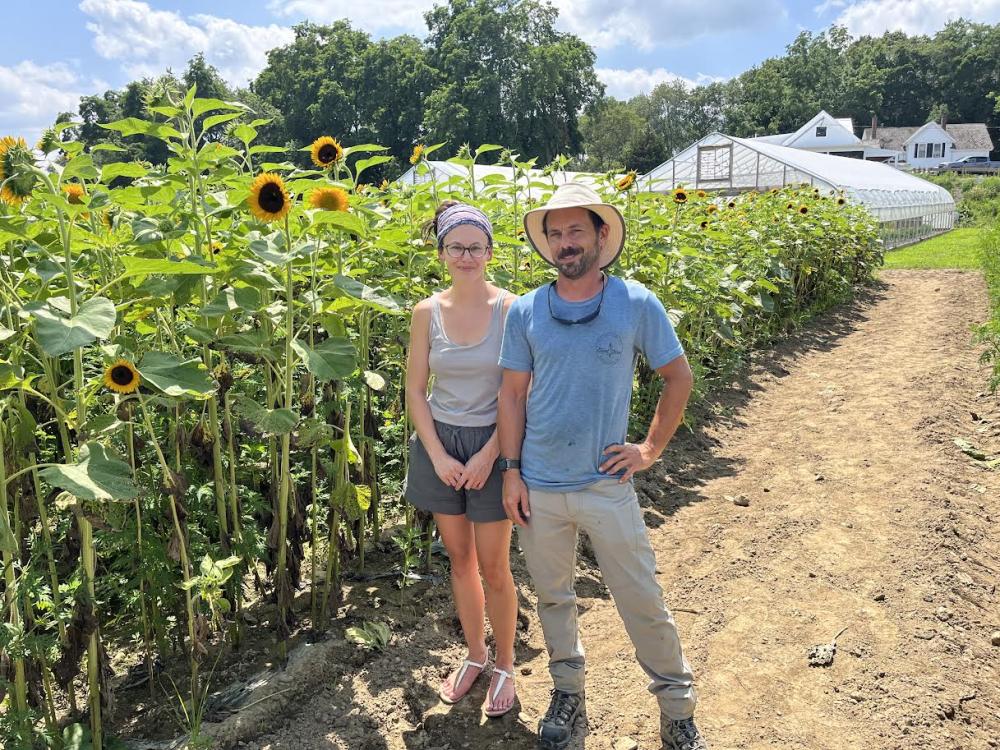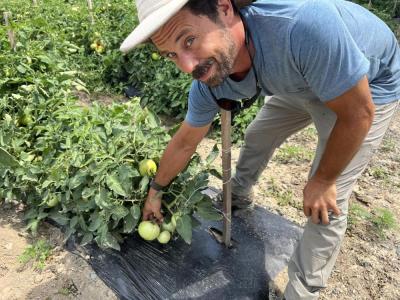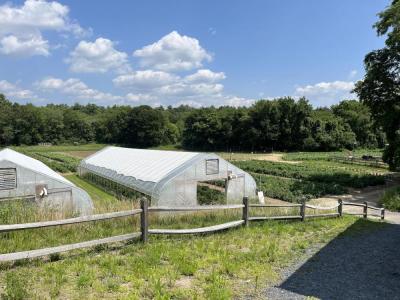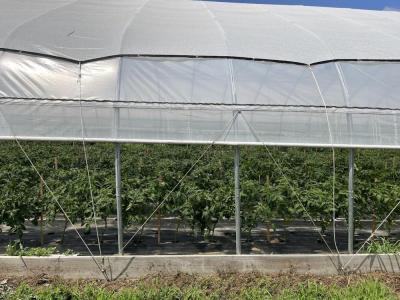Elliot Farm yields bounty of support to mitigate weather extremes
LAKEVILLE — Elliot Farm is throwing shade at one of its most popular crops.
Rising temperatures in recent years have caused more of the Lakeville farm’s beefsteak tomatoes to burn in the sun, making them unusable.
The damaged crop reduces the farm’s tomato harvest, resulting in fewer of the meaty vegetables to harvest and creating a financial hit to the business.
So in recent years, the farm has purchased a shade cloth to place over the crops to lessen the damage.
“They sunburn more readily than they did 30 years ago,’’ said Ken Elliot, who owns the farm with his sister Dee Elliot. Last year nearly half of the tomatoes were damaged by the sun.
The purchase of the shade cloth is just one example of the mitigation farmers have done in an effort to offset the impact of climate change.
“We’re seeing more severe weather,’’ Dee Elliot said. “We’re trying to prepare for more weather extremes.’’
Last year, for example, severe drought damaged crops, she said, making water conservation crucial.
The state recently awarded $26.3 million in grants to strengthen the state’s food supply system and mitigate future food supply issues.
Elliot Farm received $116,752 for specific purchases that will help conserve water and lessen the impact of weather conditions on crop production.help
“In speaking to farmers over the past week, it’s clear that they need support now more than ever after being hit hard by extreme weather events from flooding to drought to late frost,” said Governor Maura Healey. “Our farmers are the backbone of Massachusetts’ food infrastructure, and it’s critical that we continue to make short and long-term investments through grants like these to help strengthen resiliency and enhance mitigation efforts.”
Elliot Farm will use the grant money to purchase equipment that will ensure the best possible yield amid changing weather conditions and having the least possible impact on the environment.
The farm will spend $76,212 on a specific John Deere tractor that features a rotary tiller attachment to provide drip irrigation. The process reduces evaporation and runoff, which provides improved water conservation and allows farmers to grow more crops with the same amount of water.
Another grant purchase will help the farm in their efforts with pest management, which helps to reduce the use of pesticides, which can be harmful to people and wildlife.
All these efforts underscore the farm’s mission to provide fresh produce to the community. The fresher the produce is, the healthier it is, Dee Elliot said.
Fresh produce is healthier because food loses some of its nutritional value with each passing day, Dee Elliot said.
The farm provides community shared agriculture, a program in which community members purchase a “share’’ of the harvest before the season begins, which helps with start-up costs and saves consumers money and ensuring they have fresh produce through the season.
The farm also partners with local non-profits to provide fresh goods to people in need.
Purchasing farm fresh items also keeps people at the farm employed, she said, and reduces the impact on the environment by requiring fewer long hauls to supply produce across long distances.
Taking steps such as the state-funded purchases will help the farm fulfill its mission, as stated on its Web site: “To provide fresh, healthy produce, plain and simple.’’















